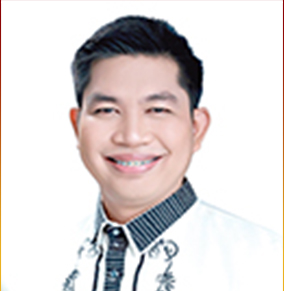 Dealing with Fraud
Dealing with Fraud

By Gee Pastor
Most of my non-accounting friends and sometimes the members of my family and relatives,
often tease me with the line "debit plus credit equals kupit (filching)." This was always
a source of chuckles when I was in college up to my early years in the practice of the
accounting profession. While obviously not reflective of proper accounting representation,
the teasing use of the line also underlined a view that accountants can be fraudsters.
While I despise the impression, it reveals something about the prevalence of fraud in the
Philippines. It's also a worldwide predicament and the weaker an entity's internal controls,
the more vulnerable it is to the ever-changing and many facets of fraud.
Fraud involves knowing misrepresentation of the truth or concealment of a material fact to
induce another to act to his or her detriment. It encompasses any intentional or deliberate
conduct to deprive another of property or money through guile, deception, or other prejudicial
or unfair means.
Fraud can be internal, external, or against individuals. Internal fraud, also known as
occupational fraud, is "the willful misuse or misapplication of an organization's resources
or assets for personal advantage." This occurs when an employee, manager, or executive
defrauds his or her employer.
External fraud, often done by vendors, consumers, or competitors, is a type that occurs
outside of a business. It can happen in conjunction with other types of fraud. With regard to
fraud against individuals, meanwhile, identity theft, Ponzi scams, phishing and advanced-fee
schemes are just a few of the ways fraudsters use to relieve unsuspecting victims of their
money or property.
Fraud can occur in all types of organizations, be they micro, small, medium or large, and
even those with the most rigorous internal controls. Most of the fraud I've dealt with falls
into the category of small- and medium-sized businesses, where I believe it is most rampant.
In his book Other People's Money: A Study in the Social Psychology of Embezzlement, Donald
Cressey developed a triangular model to explain why people commit fraud. The first leg of
the triangle is financial pressure — the driving force behind the crime. The individual
usually has a financial problem that he or she is unable to solve through legal means, so
he/she considers illegal acts such as stealing money or falsifying financial statements to
solve the matter.
Second, fraud happens when there is opportunity. The person sees an opening to take advantage
of (read: abuse) his position of trust in order to solve the financial problem with minimal
chances of being caught.
Lastly, there's rationalization. The vast majority of fraudsters are first-time offenders with
no previous criminal record. They do not consider themselves criminals but instead as ordinary,
honest people caught in a bad situation.
Trusted persons become trust violators when they perceive themselves to have a non-shareable
financial problem. They become aware that the problem can be solved by violating the position
of financial trust. They are also able to use verbalizations to adjust their perceptions of
themselves.
Businesses typically rely on employees to provide value out of their work and to create a
harmonious work atmosphere that boosts productivity. This expectancy often raises confidence
in a person and a consequent presumption of reduced fraud risks. Too much trust in someone,
however, dramatically raises the possibility of fraud.
I've seen fraud perpetrated by employees, managers, executives and even owners as a result of
excessive trust. One executive I uncovered had so much power as he had control of accounting,
financial and administrative activities. This allowed him to steal money through payroll loopholes. He also manipulated accounting records to give the impression that the company was operating normally and saving on taxes. In doing so, he made the company vulnerable to Bureau of Internal Revenue assessments.
Another instance of fraud that I uncovered involved an accounting officer who was given the
opportunity to collect money from customers. She was responsible for identifying and recording
the amount due and at the same time collect such, clearly a violation of the segregation of
duties rule. Her stealing went undetected for a long time and once caught, she admitted to doing
so in order to pay for medicines.
My personal advice when confronted with fraud is to pray for the courage to confront it as well
as the wisdom to understand the situation so that no one is prejudiced. When confronted with
fraud by uncovering the deeds of others, immediately report the discovery to trusted persons and
if possible, to the owners. Remember to follow our Code of Ethics and maintain integrity.
Fraud is a human condition, not an accounting problem. It is recommended that organizations be
more prudent with their operations by implementing strict internal controls and avoiding placing
too much reliance on a single person. Similarly, us accountants must maintain our integrity and
never entertain the notion of committing or being used to commit fraud. Finally, people must be
more vigilant and cautious in their dealings.
Gee A. Pastor, CPA, JD is the quality assurance review manager of Paguio, Dumayas & Associates, CPAs (PrimeGlobal Philippines),
and a member of the Acpapp board of directors. The opinion of the writer does not
reflect in any way the opinion of PDAC.
Source: Dealing with Fraud - Manila Times